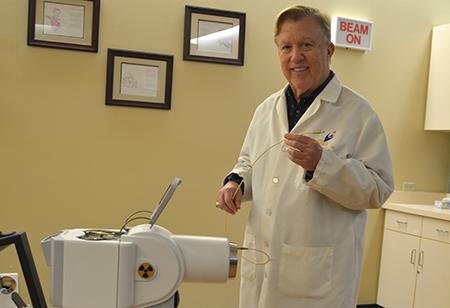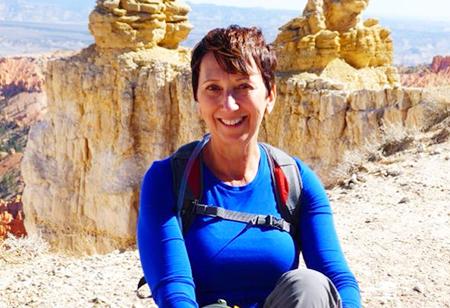For Robin, it was an easy choice — five days of an accelerated treatment for breast cancer versus six weeks of traditional radiation therapy.
Breast implants were a factor
An Alaska native, Robin consulted with her doctor in Anchorage to determine what treatment would be best for her.
Because she had worked in a cancer treatment center, Robin knew the side effects of traditional (external beam) radiation that lasts five days a week for six to seven weeks — major fatigue after two weeks and burning of the skin. In addition, she had breast implants, and she knew that traditional radiation could cause them to harden, requiring their removal. Robin’s surgeon had read about brachytherapy and recommended Dr. Kuske. Dr. Kuske’s work in brachytherapy not only spares the heart and lungs from possible radiation exposure that can occur with traditional radiation therapy, it also can be a suitable treatment for women with implants.
A month after her surgery, Robin consulted with Dr. Kuske and began her therapy in mid-February 2019.
Partial breast radiation
Dr. Kuske said the inspiration for his work was a Venezuelan oil company CEO who came to him for breast cancer treatment.
“She told me she wasn’t going to lose her breast, and she didn’t have time for six weeks of treatment,” he said. “She was a pioneer.”
He knew that brachytherapy had been used successfully by gynecologists and for patients with prostate cancer and soft-tissue sarcoma.
“She forced us to think outside the box,” he said.
By treating only the affected part of the breast with a radioactive seed, Dr. Kuske shortened her therapy to less than a week.
“It was a paradigm shift in the treatment of breast cancer,” he said.
The success of this idea led to the first research trial, then to subsequent national trials that Dr. Kuske directed. His research and practice of brachytherapy has been published in U.S. and international textbooks, trade association journals and other publications.

